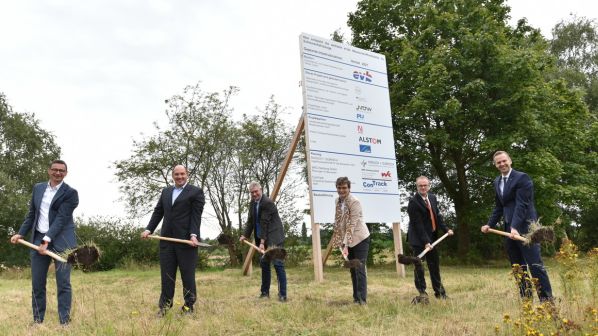Engineering firm Linde will build and operate the filling station on behalf of Lower Saxony Regional Transport Company (LNVG), in collaboration with Alstom, the state of Lower Saxony and Elbe-Weser Railway and Transport Company (EVB). Work is expected to be completed by mid-2021 and will replace the existing mobile filling facilities.
The station will have the capacity to supply up to 1600kg of hydrogen per day, and the project includes plans for further expansion which would allow hydrogen to be produced on site using electrolysis and renewable energy sources.
From 2022, the station will serve the region’s fleet of 14 Alstom Coradia iLint hydrogen trains, following the announcement that the region’s initial two trains have successfully completed an 18-month, 180,000km test phase at the end of February. The introduction of hydrogen trains is intended to provide a low-carbon alternative to existing diesel fleets.
The project is subsidised by the German Ministry of Transport’s national innovation programme for hydrogen and fuel cell technology. The National Organisation for Hydrogen and Fuel Cell Technology (NOW) is coordinating funding guidelines and Project Management Jülich is responsible for implementation.
“The introduction of hydrogen as a fuel for trains will significantly reduce the burden on the environment, as 1kg of hydrogen replaces approximately 4.5 litres of diesel fuel,” says Mr Mathias Kranz, Linde’s manager for onsite and bulk business in Germany.
“The hydrogen filling station in Bremervörde will create the basis for the series operation of our emission-free hydrogen trains on the Weser-Elbe network,” says Mr Jörg Nikutta, Alstom’s managing director for Germany and Austria.

